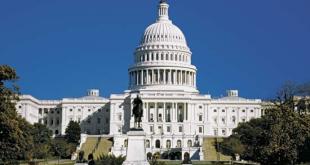If New Jersey Governor Chris Christie has his way, the next time New Jersey hosts a Super Bowl, fans may be able to walk down the street and drop a wager on their favorite NFL team before the big game. Christie’s dream, however, has faced numerous speed bumps, and with his options dwindling, Christie made one final effort, pushing all his chips in the middle of the table.
In 2012, New Jersey enacted legislation that would legalize sports betting at casinos and racetracks across the Garden State, though specifically exempting wagering on New Jersey-based colleges such as Princeton or Rutgers. Though this is not the first time a push has been made to permit sports gambling in the State,[i] Christie’s law represents the first time New Jersey has actually enacted such legislation. New Jersey’s push to legalize sports betting is largely motivated by an effort to boost its struggling economy. For example, the implementation of sports gambling is forecasted to generate millions of dollars in tax revenue for the State,[ii] as well as provide a huge boost to a tourism industry largely buoyed by the East Coast’s gambling Mecca - Atlantic City.
The problem for Christie, as in any casino, the “House” always has the advantage, and in this case, the House (i.e. the United States Government)has one significant advantage over Christie: the Professional and Amateur Sports Protection Act (“PASPA”).[iii] In 1992, with 13 states considering State-sponsored sports betting schemes, Congress passed PASPA, which restricted certain forms of State-sponsored sports gambling to a handful of States that were grandfathered in under the law.[iv] Congress was primarily concerned that State-sponsored sports gambling would damage the integrity of sports and have negative effects on the Nation’s youth.[v] Additionally, Congress rejected the idea that State-sponsored sports betting is a viable solution to budget problems.[vi]
On August 7, 2012, the NCAA and all four major U.S.-based professional sports leagues – the NFL, NBA, MLB and NHL – (the “Leagues”) filed a lawsuit seeking to prevent the implementation of Christie’s sports gambling law.[vii] It should come as no surprise that the Leagues clearly favor PASPA and the preservation of the status quo. In addition to their concerns about maintaining the “integrity of the game,” the current system under PASPA has proven to be a lucrative one for the Leagues. The value of teams, licensing fees and broadcasting rights has steadily risen for decades, and the expanded sports wagering could potentially upset that profitable status quo. Additionally, a victory in the current lawsuit would only further strengthen the leagues’ intellectual property rights when it comes to ownership of data.
Christie’s law was therefore a direct challenge not only to PASPA but also to the current revenue models in the sports industry. Both California and Minnesota introduced pro-sports betting legislation in 2012, but both states said they would only proceed if New Jersey’s law is upheld.
Don’t Tread on Me, The Legal Theory Christie Hopes Will Win the Day
According to Christie, it should be up to the individual states, not the federal government, to regulate sports gambling. As such, New Jersey has argued that PASPA is a violation of the Constitution’s anti-commandeering principle.[viii] New Jersey further posits that PASPA violates the Constitution’s equal sovereignty clause because it discriminates between states on sports gambling grounds by singling out some, such as Nevada, for preferential treatment.[ix] Said Christie spokesman Colin Reed, “[t]wo years ago, the people of New Jersey voted overwhelmingly to bring sports betting to New Jersey, and the governor agrees with his constituents. There’s no reason it should be limited to only a handful of states. It’s a fundamental issue of fairness.”
Thus far, however, Christie’s roll of the dice has come up snake eyes. On February 28, 2013, the United States District Court for the District of New Jersey ruled against Christie, holding that PASPA was constitutional.[x] Judge Michael Shipp ruled that some of the questions raised in the case were novel, but he suggested the best way to change the U.S. law was to get Congress to repeal or amend PASPA.[xi]
Following an appeal, the U.S. Court of Appeals for the Third Circuit again ruled against New Jersey on September 17, 2013 in a split, 2-1 decision.[xii] While the Court stated that it was “cognizant that certain questions related to this case — whether gambling on sporting events is harmful to the games’ integrity and whether states should be permitted to license and profit from the activity — engender strong views,” it declined to “judge the wisdom of PASPA or of New Jersey’s law, or of the desirability of the activities they seek to regulate” and held that “New Jersey’s sports wagering law conflicts with PASPA and, under our Constitution, must yield.”
Following the governor’s string of courtroom losses and after racking up a multi-million dollar taxpayers’ bill, New Jersey took one final chance, filing a petition for a writ of certiorari on February 12, 2014 formally asking the U.S. Supreme Court to review the case.
“In [Judge Thomas Vanaskie’s Third Circuit] dissent, the judge agrees with New Jersey’s central argument — that the law is unconstitutional since it prevents sports betting in New Jersey against the wishes of its own elected officials and citizens,” Christie spokesman Colin Reed said. “This makes the issue all the more appropriate to be decided by the U.S. Supreme Court. ”
It will certainly be interesting to see what happens from here. To start, it is likely a long shot that the Supreme Court will even consider New Jersey’s case. The Supreme Court’s Rules state plainly that “[r]eview on a writ of certiorari is not a matter of right, but of judicial discretion.”[xiii]
Putting an even finer point on it, the Rules explain that “a petition for writ of certiorari will be granted only for compelling reasons.” Only about 1% of petitions are accepted by the Court. The fact that the Third Circuit’s ruling was a split decision gives hope that the Court will hear the case,[xiv] but even if it does, there’s ample reasoning why the Supreme Court would also reject Christie’s arguments as the courts before it have already done.
In poker terms, with the odds firmly stacked against him, Christie’s going to need a miracle on the river if he hopes to turn Atlantic City into the second coming of Sin City.
[i] For example, in 1993 the twelve licensed gambling casinos in Atlantic City brought suit seeking a declaration that the Casino Control Act, which created the casinos, also authorized the casinos to host sports betting. Petition of Casino Licensees for approval of a new game, rulemaking and authorization of a test, 633 A.2d 1050 (N.J. 1993). Additionally, in 2004 a bill was introduced in the New Jersey State Assembly that would permit in-person wagering on sporting events at casinos in Atlantic City, New Jersey. 13 Sports Law J. 143, 149-51 (2006). Neither attempt was successful. [ii] In 2009, $2.57 billion was legally wagered in Nevada’s sports books. Those sports books, which are heavily taxed by the State, realized a total net revenue of $136.4 million. The American Gaming Association [iii] “It shall be unlawful for-(1) a governmental entity to sponsor, operate, advertise, promote, license, or authorize by law or compact, or (2) a person to sponsor, operate, advertise, or promote, pursuant to the law or compact of a governmental entity-
a lottery, sweepstakes, or other betting, gambling, or wagering scheme based, directly or indirectly (through the use of geographical references or otherwise), on one or more competitive games in which amateur or professional athletes participate, or are intended to participate, or on one or more performances of such athletes in such games.” 28 U.S.C. 3702
[iv] Nevada, Delaware, Oregon and Montana were all permitted to continue the sports-related gambling operations that were already in place in their States, with Nevada granted the widest scope and the others limited to certain sports-gambling “lottery” games. S. Rep. 102-248 (1991). [v] “[S]ports gambling threatens to change the nature of sporting events from wholesome entertainment for all ages to devices for gambling. It undermines the public confidence in the character of professional and amateur sports. Furthermore, state-sanctioned sports gambling will promote gambling among our Nation’s young people” Id. But See, S. Rep. 102-248 (1991)(minority views of Senator Grassley)(“If the professional sports leagues are truly concerned with American youth, as they claim, they should concentrate their efforts on policing their own drug policies, and eliminate alcoholic beverage advertising from their broadcasts and stadiums, rather than worrying about a few sports pool lottery tickets which pose no threat to the integrity of the leagues or the youth of America”). [vi] “[T]he risk to the reputation of one of our Nation’s most popular pastimes, professional and amateur sporting events, is not worth it.” S. Rep. 102-248 (1991). [vii] NCAA v. Christie, No. 12-cv-4947 (D.N.J.). [viii] The anti-commandeering principle forbids Congress from ordering states or their political subdivisions to take affirmative action to govern or regulate in a particular way. But it does not forbid Congress, in its regulation, to forbid states from regulating in a particular way (or perhaps in a particular field at all), so long as Congress is acting within its constitutionally enumerated powers. New York v. United States, 505 U.S. 144, 188 (1992); Printz v. United States, 521 U.S. 898 (1997) [ix] Congress may not enact irrational discriminatory limitations on the sovereign powers of the States. Rather, “all the States enjoy ‘equal sovereignty’ ” absent a “showing that a statute’s disparate geographic coverage is sufficiently related to the problem that it targets.” Nw. Austin Mun. Util. Dist. No. One v. Holder, 557 U.S. 193, 203 (2009). [x] NCAA v. Christie, 926 F.Supp.2d 551 (D.N.J. 2013). [xi] Id. at 555. [xii] NCAA v. Governor of New Jersey, 730 F.3d 208 (3d. Cir. 2013). [xiii] Sup. Ct. R. 10. [xiv] Supreme Court Rule 10 identifies the three primary scenarios under which certiorari could be granted, including where a court of appeal has decided an important federal question “in a way that conflicts with relevant decisions of this Court.” The Sports Esquires Putting Sports on Trial
The Sports Esquires Putting Sports on Trial




2 comments
Pingback: Don’t Bet On It: Third Circuit Strikes Down New Jersey’s Latest Attempt to Legalize Sports Betting | The Sports Esquires
Pingback: Handicapping The Sports Betting Rehearing En Banc - The Sports Esquires